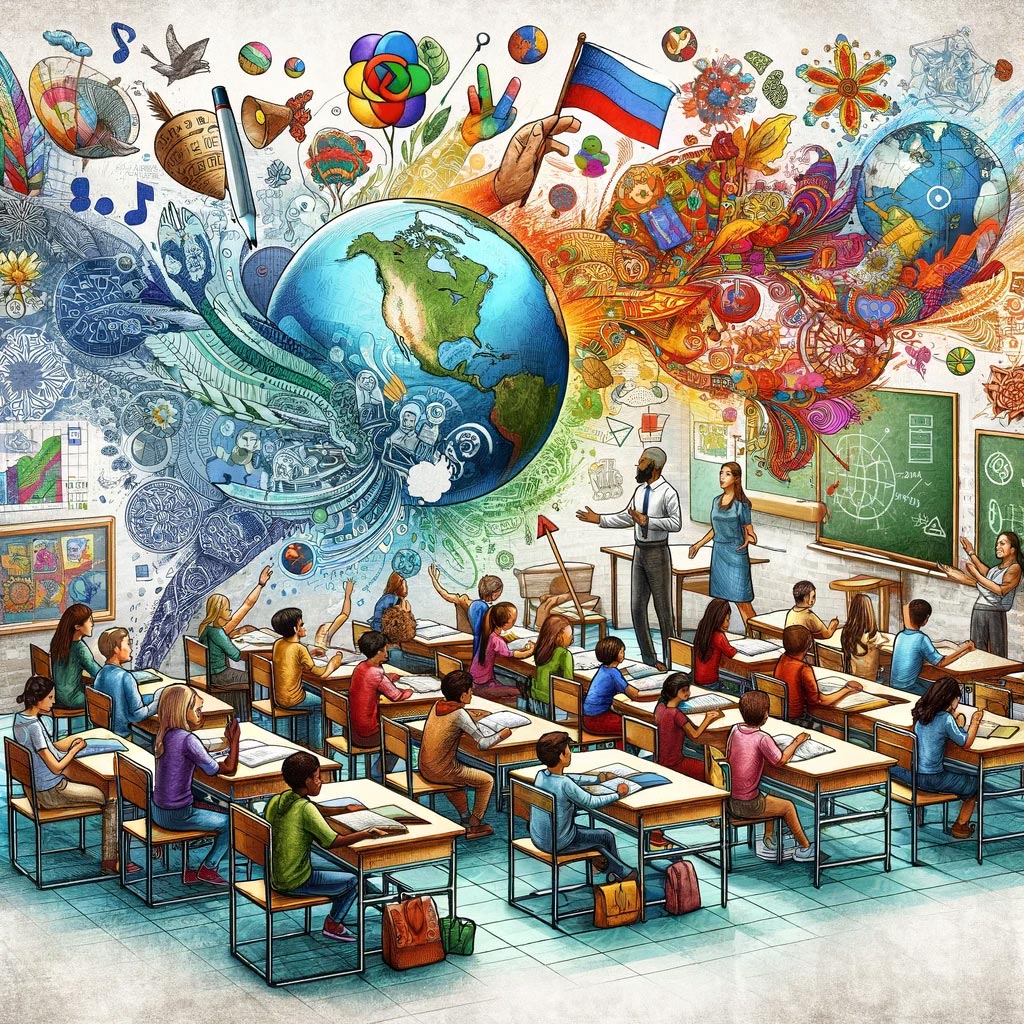
Society & Culture's Impact on the Teaching Profession: An In-Depth Exploration
In the evolving world of education, the intricate relationship between society, culture, and the teaching profession plays a crucial role in shaping pedagogical strategies, curriculum development, and the overall effectiveness of educators in diverse classrooms. This article aims to provide comprehensive insights into how societal norms and cultural values influence the teaching profession, offering educators, sociologists, education policy makers, and students in education and sociology fields valuable strategies for integrating these elements into their teaching practices.
Understanding the Influence of Society and Culture on Education
The Role of Cultural Competence in Education
Cultural competence in education refers to an educator's ability to understand, appreciate, and incorporate the cultural differences and similarities within and among groups. This competency extends beyond mere awareness or knowledge, encompassing the ability to use cultural understanding to improve learning outcomes. In classrooms that mirror the diversity of society at large, cultural competence helps in crafting lesson plans that are inclusive, engaging, and respectful of the students' backgrounds.
Societal Expectations from Educators
Educators are often seen as agents of social change, tasked with the responsibility of preparing students not only academically but also as informed citizens capable of contributing positively to society. Societal expectations from educators include promoting values such as inclusivity, respect for diversity, and understanding of global cultures. These expectations underscore the need for teachers to adapt and evolve their teaching methodologies to reflect the changing societal norms and values.
Impact of Cultural and Social Environment on Pedagogy
The cultural and social environment in which education takes place significantly impacts pedagogical strategies. Educators face the challenge of integrating cultural sensitivity into their teaching methods to cater to a diverse student population. This involves understanding the students' backgrounds, including their linguistic, racial, ethnic, and socioeconomic status, and adjusting teaching methods accordingly to ensure all students have equal opportunities to succeed.
Strategies for Integrating Society and Culture into Teaching
Developing Cultural Sensitivity in Teaching
To effectively integrate society and culture into teaching, educators must first develop cultural sensitivity. This involves recognizing personal biases, understanding the cultural backgrounds of their students, and adopting an inclusive approach to teaching. Strategies include incorporating culturally relevant materials into the curriculum, celebrating cultural diversity through classroom activities, and fostering an environment where students feel valued and understood.
Pedagogical Strategies for Diverse Classrooms
In diverse classrooms, educators can employ various pedagogical strategies to address the needs of all students. Differentiated instruction, which involves tailoring teaching methods and materials to meet the varied needs of learners, is crucial. Additionally, incorporating multicultural education principles can help students appreciate and understand the rich tapestry of world cultures, thereby fostering a sense of global citizenship.
The Role of Teachers in Cultural Integration
Teachers play a pivotal role in cultural integration within the educational setting. By promoting understanding and respect for different cultures among students, educators can help build bridges between diverse groups, contributing to a more cohesive and inclusive society. This involves not only teaching about different cultures but also encouraging students to share their own cultural experiences and perspectives, enriching the learning experience for everyone.
Case Studies and Expert Opinions
Success Stories in Integrating Societal Values
Several case studies highlight successful integration of societal values in teaching. For example, schools that have implemented service-learning projects as part of their curriculum help students understand and address community needs, fostering a sense of social responsibility and civic engagement. These initiatives not only enrich students' learning experiences but also strengthen the connection between education and societal development.
Future Directions for Teaching in Culturally Diverse Societies
Experts in education and sociology emphasize the importance of preparing educators to thrive in increasingly diverse societies. This includes ongoing professional development in cultural competence, as well as research into innovative teaching methodologies that embrace cultural and societal diversity. The future of teaching lies in creating learning environments where diversity is seen as an asset, and where educators are equipped to harness the full potential of their diverse student populations.
Conclusion
The relationship between society, culture, and the teaching profession is dynamic and complex. As educators navigate the challenges and opportunities presented by diverse classrooms, it becomes clear that a deep understanding of cultural and societal influences is essential for effective teaching. By embracing cultural competence, fostering societal values, and implementing inclusive pedagogical strategies, educators can make significant contributions to preparing students for a globalized world. This exploration underscores the need for a comprehensive approach to integrating society and culture into the teaching profession, one that is rooted in respect, inclusivity, and a commitment to educational excellence.
As we move forward, educators, policymakers, and stakeholders in the educational sector must continue exploring and implementing strategies that reflect the diverse needs and potentials of all students. The future of education depends on our ability to adapt and respond to the changing societal and cultural landscapes, ensuring that teaching remains a profession that not only imparts knowledge but also fosters understanding, empathy, and unity among the next generation.
Society Culture



